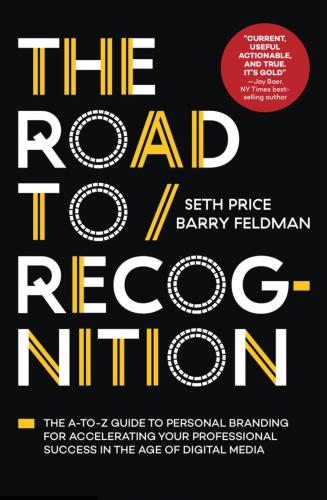Be clear about your mission—Share it with gusto, but take care to make only promises you know you can keep. Practice what you preach.
Be consistent—Each and every conversation—online and off— is an opportunity to demonstrate your values. Align everything around them and send a consistent message.
Let authenticity be your compass—Throughout this book, you will discover many tips, tactics, and strategies to strengthen your personal brand. Let authenticity help you navigate and develop a brand you believe in.
Are you feeling good about what the real you has to offer? Great. Let’s look at how you share it with the world.
Build your
personal brand
with a blog
Publish your point of view. The most important personal branding development in the age of digital media is the power to publish at will and express your ideas. Start a blog and keep building on it.
B is for Blog
Everything you do online shapes your personal brand. And most, if not all, of your online communications connect back to your blog.
When you’re done with this book, you’ll have many tools in your personal branding arsenal. Some are more important than others. Some are optional. Blogging is not. Blogging is an imperative discipline of the personal brander.
If you haven’t begun blogging, you’ll gain some useful starting points here. If you blog now, use the tips here to improve your blog. You should strive to become a better blogger each and every time you go into your content management system and click “new post.”
What’s the point?
As a business blogger, you’re bound to have a number of objectives. How you prioritize them will inform your publishing strategy. Let’s examine some of the goals you can work toward with your blog.
Establish authority
Your blog is the hub of your personal branding efforts, where you share your expertise to establish authority in your niche.
Connect with readers
By sharing useful, relevant information, you’ll connect with customers, partners, other bloggers, and every conceivable constituent in your social and business circles.
Win business
The majority of brands that blog acquire more customers.
Inspire your social media
You’ll promote your blog posts regularly and take advantage of the amplification social networks can provide.
Increase reach
Your blog will be shared and find new eyeballs daily.
Grow your email database
Your blog should inspire people to sign up for your email newsletter list, which, in turn, feeds traffic to your blog.
Generate publicity
As previously mentioned, business bloggers establish authority. When you demonstrate you know your niche, you’ll get asked for interviews frequently.
Give your brand a voice
A blog is your pulpit, your publication, your journal—the place where you talk about whatever you choose, however you choose.
Exchange ideas
Blogs obliterate the wall that once stood between a brand and its customers. Encourage interaction, comments, and feedback.
Get (and stay) customer focused
By blogging, you’ll learn how to speak in your customers’ terms and grow more in touch with your audience’s wants and needs.
Increase focus
A subtle addendum to the point above: blogging consistently forces you to define who you are trying to reach and why.
Discover
You are going to learn a lot about yourself and the world around you. It comes with being a writer.
Start with a basic publishing plan
As a business blogger, you become an online publisher. Your starting point is to document a concise plan to address the fundamental why, who, what, and where questions.
Why will you have a business blog?
Establish your goals by considering the ideas above and create a short list that addresses your specific objectives.
Who’s the blog for?
Create a persona (or multiple personas) to describe a prototype reader. Include both demographic and psychographic details. The goal is to develop a clear understanding of what pushes the reader’s buttons, intellectually and emotionally.
What will the blog offer?
How will your content satisfy the needs of its readers?
Where will it be published?
Your personal brand blog should not be published only offsite, that is, on platforms such as Blogger.com, WordPress.com, Tumblr, Medium, LinkedIn, etc. You may want to take advantage of these channels; however, your interests are best served by hosting a blog on your own domain.
After considering each issue above, document a brief mission statement to define what you will publish, for whom, and the specific value of the content.
Develop a strategic editorial plan
Your business blog needs to focus on specific topics but be broad enough to allow you to perpetually create new and useful content. Let’s get into some practical approaches for identifying topics and extracting ways to use them to publish relevant content regularly.
ID the questions prospects ask
You need to discover your prospects’ interests, concerns, and challenges and interpret them as questions. What would they type in a search query?
Your prospect’s questions might be uncovered in chat, email, phone calls, blog commentary, etc. Tune in closely to these channels and document the questions you’re able to gather.
Also, spend time on the social media channels your prospects use. Look for questions and conversations about business challenges. Make and maintain a list of them. You’re going to answer them
